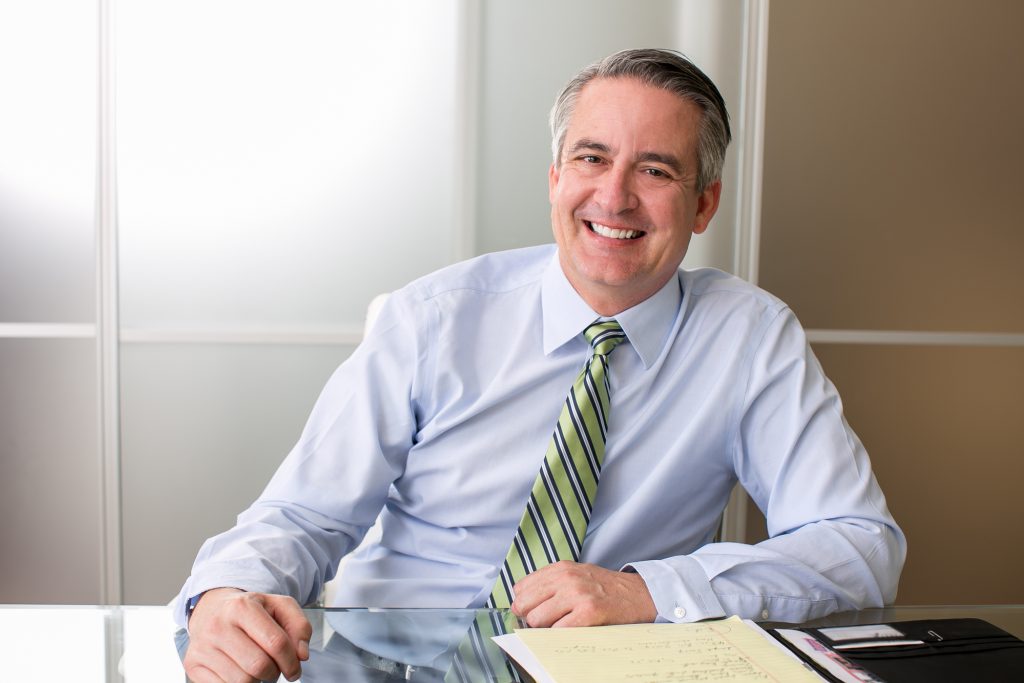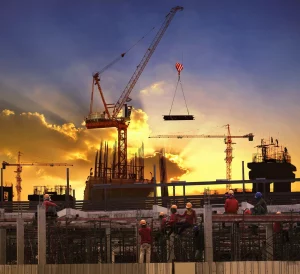Category: Uncategorised

Movers and Shakers in Transport & Infrastructure – The Headlines from September 2022
Published: September 30th 2022
It’s been an eventful month for our nation as the country mourned the Queen and welcomed a new Prime Minister.
It’s all systems go for Transport & Infrastructure as well, in what might just be the biggest movers and shakers update since we started circulating. What’s really positive is that 36% of all movers this month are female leaders, a new diversity record for Movers & Shakers.
Transport for London
Andy Byford has announced he will step down from his role as Commissioner at the end of October. Byford said he decided to leave the organisation after he met “two clear priorities” set at the beginning of his tenure in June 2020: opening the Elizabeth line, and leading TfL out of the pandemic and onto a better financial footing. Byford will be replaced on an interim basis by Chief Operating Officer Andy Lord.
Genesee & Wyoming
Eddie Aston has left Genesee & Wyoming Inc, where he was Chief Executive Officer of the UK/Europe Region. Becky Lumlock has been appointed interim CEO until a successor has been appointed and transitioned to the role.
Serco
Have announced that CEO Rupert Soames will retire from the company in September 2023, and he’ll be succeeded by Mark Irwin, who’s currently the CEO of Serco’s U.K. and Europe Division.
Balfour Beatty
Have appointed Peter Mumford as Managing Director of its Regional Civils business in England and Wales. He joins from National Highways, where he spent five years, most recently as Executive Director – Major Projects & Capital Portfolio Management.
Andy Weber has also joined as Head of Interface Management for the HS2 Old Oak Common Station project. Weber has been working on Crossrail since 2015 most recently as Head of Stations.
Grant Thornton
Have appointed Marianne (Mo) Kilpatrick as a Managing Director in their Infrastructure team. Kilpatrick was Practice Director, Transport Consulting & Advisory for SNC Lavalin until 2019 and since then has been working as an Independent Consultant in the transport sector.
Manchester Airport Group
Have announced the appointment of Gareth Powell as the new Managing Director of London Stansted Airport. He joins having spent 19 years at Transport for London (TfL), most recently as Deputy Commissioner and Chief Customer and Strategy Officer, which saw him lead TfL’s recovery from the Covid-19 pandemic.
He succeeds Steve Griffiths who moves to become Managing Director of East Midlands Airport and will have group-wide responsibility for delivering MAG’s Operational Transformation Programme.
South West Water
Richard Price joins as Chief Engineering Director. He leaves Bristol Water where he was Chief Operating Officer.
ARCADIS
Have announced three senior Sustainability Advisory appointments across the globe. Jane Boyle has joined as Sustainability Advisory Practice Lead in the UK and Ireland, while Michelle Bachir has joined in the same role in North America. Kealy Herman joins as Global Technical Director for Net Zero Strategy, residing in the United States.
Costain
Costain has named a Conservative peer and former public relations Executive, Baroness Rock to be its next Chair. She will take over from Paul Golby on 1st December 2022
Amey
Stephen Knott has been promoted internally to become Business Director – Strategic Highways. Knott has been with the business since 2014 most recently as Account Director.
VINCI
Garry Bowker has become Managing Director responsible for overseeing the North West, Yorkshire & North East and Midlands regions of VINCI Building in the UK. Bowker has been Regional Director, North West for the last two years.
Porterbrook
Have announced the appointment of Rob Taylor as Chief Financial Officer. The move comes as a result of the planned retirement of CFO Peter Coates. Taylor joins from Trenitalia UK where he is currently Finance and Corporate Director.
BTTC
Have appointed Matt Clark as their new Global Head of Program Delivery, Clark has been Chief Capital Officer at Metrolinx.
Mace
Mace’s Chief Financial Officer Richard Bienfait has resigned with immediate effect. Bienfait had held the executive position since January 2020.
UK Government
Anne-Marie Trevelyan has been appointed as the new Secretary of State for Transport. Trevelyan has been an MP in the Berwick-upon-Tweed constituency since 2015 and has previously held roles such as the Secretary of State for International Trade and President of the Board of Trade.
Alongside this, Jacob Rees-Mogg has been appointed Secretary of State for Business, Energy and Industrial Strategy.
Lord Callanan has been named as the new construction minister. The Conservative politician was appointed parliamentary undersecretary of state at the Department for Business, Energy and Industrial Strategy (BEIS) in February 2020.
Freightliner
Paul Long joins as Professional Head of T&RS Engineering. He leaves Loram UK where he has been Technical Director.
Metrolinx
Have appointed Chris Spencer as Vice President & Project Director. He moves from DfT where he has been Project Director working on the operation of the railway in the Midlands, UK.
Unipart Rail
Julie Carrier joins as Chief Commercial Officer UK & Europe. She leaves SYSTRA where she has been since 2016, most recently as Strategic Sales Director.
Blackstone
Gabrielle Dale has moved to Blackstone as their Managing Director for Infrastructure. She leaves Macquarie Group where she has been since 2006.
Jacobs
Have announced that Bob Pragada, current President and Chief Operating Officer, and a 16 year veteran of the company, will succeed Steve Demetriou as Chief Executive Officer and join Jacobs’ board of directors. The changes are effective Jan. 24, 2023. Demetriou will continue to serve as Executive Chair for a two-year minimum.
In the UK Richard Sanderson has been promoted to lead Jacobs UK and Ireland’s Transportation business. Sanderson succeeds James Nash who is now leading Jacobs Energy and Power business for Europe.
Bechtel
John Williams has been appointed at President, Bechtel Infrastructure Northeast US & Canada. Williams has been Managing Director for UK & Ireland since 2019.
Michelle De Franca also moves internally to become Managing Director for the Public Infrastructure business in the UK & Ireland. She has been with Bechtel since 2009 most recently as Transport Sector Lead.
South West Water
Richard Price joins as Chief Engineering Director. He leaves Bristol Water where he was Chief Operating Officer.
ARCADIS
Have announced three senior Sustainability Advisory appointments across the globe. Jane Boyle has joined as Sustainability Advisory Practice Lead in the UK and Ireland, while Michelle Bachir has joined in the same role in North America. Kealy Herman joins as Global Technical Director for Net Zero Strategy, residing in the United States.
Costain
Costain has named a Conservative peer and former public relations Executive, Baroness Rock to be its next Chair. She will take over from Paul Golby on 1st December 2022.
First Bus
Catherine De Marco joins as Partnerships Director. De Marco has spent the last 17 years in the civil service most recently with the Department for Transport (DfT) as Deputy Director Infrastructure Skills & Efficiency.
Network Rail
Jennifer Beston returns as Infrastructure Director for the HS1 route. Beston leaves Southeastern Railway where she was Head of Major Programmes since 2018.
Freightliner
Paul Long joins as Professional Head of T&RS Engineering. He leaves Loram UK where he has been Technical Director.
Metrolinx
Have appointed Chris Spencer as Vice President & Project Director. He moves from DfT where he has been Project Director working on the operation of the railway in the Midlands, UK.
Osborne
Have appointed Peter Duff as Group Finance Director to replace Stuart Hammond who is stepping down from the role after 17 years with the business. Duff joins Osborne from Laing O’Rourke where he has spent the last seven years latterly as European Finance Director.
Cundall
Have appointed Robin Pritchett as the UK’s National Lead for Building Performance Services (BPS). Pritchett joined Cundall in 2011 and was most recently Associate Director.
Chiltern Railways
Vanessa Russell has joined as Human Resources Director. Russell leaves GTR where she has been since 2018, most recently as Head of People for Southern and Gatwick Express.
Rianna Stanwell also joins as Programme Director, following four years at Arriva Rail London most recently as Head of Business Strategy.
Unipart Rail
Julie Carrier joins as Chief Commercial Officer UK & Europe. She leaves SYSTRA where she has been since 2016, most recently as Strategic Sales Director.
Great British Railways Transition Team
Matt Dolphin leaves Abellio Greater Anglia where he has been Finance Director, to take on the role of Commercial Finance Director – Fares, Ticketing & Retail.
Global Centre of Rail Excellence (GCRE)
Kelly Warburton joins as Chief Commercial Officer. She leaves Unipart Rail where she has spent 17 years, most recently as Managing Director UK & Europe.
Muse
Morgan Sindall’s development arm, Muse, has appointed a former Landsec Director as its new Finance Director. Rosalind Futter worked at Landsec in a variety of finance roles for more than a decade – most recently serving as Group Finance Director.
Taylor Woodrow
John Lucas, Head of Resourcing is retiring following 34 years in the industry and 10 years with the business. He will be succeeded by Isabel Walder who has been Resource Manager since 2018.
Tilbury Douglas
Have made a number of changes to its teams across the UK. Paul Ellenor has been named as the group’s Regional Director for Yorkshire and the North East. To support Ellenor in his new role, Shaun Pearson has been appointed as Operations Director for the same regions.
They have also appointed Barry O’Hagan as Operations Director for Scotland.
ENOTRAC UK
ENOTRAC have appointed Martin Horsman as Managing Director of its UK subsidiary ENOTRAC UK. Horsman was formerly Associate Director as IPEX Consulting.
East Midlands Railway
Have appointed Simon Pready as Commercial Director. Pready leaves Nederlandse Spoorwegen where he has been Head of Asset Strategy based in the Netherlands. EMR’s owner group Abellio have until recently been a subsidiary of Nederlandse Spoorwegen, until they announced their MBO in August.
Skanska
Richard Adams takes up the role of Area Director in their SCS JV on HS2, leaving Balfour Beatty where he was Executive General Manager for Major Projects.
RIA
Etihad’s CEO Tony Douglas has accepted an offer to to head Saudi Arabia’s new airline RIA. Senior Etihad executives are expected to follow in Douglas’ footsteps and join the airline in the upcoming months.
RATP Dev
Bill Cahill joins as Managing Director, Transit London. Cahill has most recently been Chief Operating Officer for the Mwasalat (ONTC) line in Oman.
XRail Group
Kelly Pepper joins as Business Development Director. She leaves Unipart Rail where she was Business Development Director UK & Europe.
If you’re looking to make any changes to your senior teams get in touch to see how partnering with Newsom Consulting will help you find the best talent.
Author: Jim Newsom

Jim Newsom
Managing Director

Movers and Shakers in Transport & Infrastructure – The Headlines from August 2022
Published: September 23rd 2022
The summer holidays are drawing to a close, so while you make the most of the BBQ check out the latest movers and shakers from the transport and infrastructure sectors…
Eurostar
Gwendoline Cazenave has been appointed as CEO of Eurostar Group. She will succeed Jacques Damas who has been CEO of Eurostar since October 2020 and CEO of Eurostar Group since it was formed. Cazenave has been a Partner at management consultancy Oliver Wyman for the last two years.
HS2
Alexandra Batey has joined as Phase 2b Development Director. She leaves TfL where she has been for almost 20 years, most recently as Director of Investment Delivery Planning.
LogiKal
Simon Jacklin has been appointed as Executive Director for South West & Wales. He leaves AECOM where he has been Director – Infrastructure, South West & Wales since 2018.
SNC Lavalin
Have appointed Christophe Junillon as Managing Director for Nuclear and Power in Europe, Middle East and Africa, succeeding Chris Ball. Junillon is currently the group’s Director of Nuclear New Build in the region and has worked for the organisation for more than 25 years.
WSP
Have appointed Leanne Smith-Perrins as Head of Transformation Advisory, continuing the growth of its new Strategic Advisory business. She joins from Arcadis where she was Business Director and Partner of Business Transformation.
Clancy Consulting
Wendy Stanton joins Divisional Director to strengthen its civil and structural engineering
team. She leaves Fairhurst where she has been Regional Director since 2013.
Balfour Beatty
Have appointed Lee Hewitt as UK Health, Safety and Environment Director. He succeeds Heather Bryant who is retiring in November having spent eight years at Balfour Beatty.
Story Contracting
Have announced that Andy Joy, Managing Director of Story England, will take over as CEO from April next year. He takes over from Jason Butterworth who has been at the helm for the past 6 years.
SLC Rail
Have appointed Andrew Helm as Head of Economic Appraisal. Helm began his career at Steer Davies Gleave (now Steer) before continuing as a freelance consultant.
Willmott Dixon
Have appointed Roger Morton to the newly created role of Director of Strategic Change. Morton joins Willmott Dixon from Vistry Group, where he was Group Change Director, following a 25-year career as an Officer in the Corps of Royal Engineers.
Ramboll
Bernard Conroy joins the science sector leadership team as Building Services (MEP) Director. Conroy joins from Hoare Lea where he has been Director since 2019.
Metrolinx
Frank Ibe joins next month as Vice President, Rail Services for GO & UP (Union-Pearson Express). He leaves TfL where he has been Head of Line Operations for the Victoria and Bakerloo lines.
If you’re looking to make any changes to your senior teams get in touch to see how partnering with Newsom Consulting will help you find the best talent.
Author: Jim Newsom

Jim Newsom
Managing Director

Where Have the Over 50’s Gone? – 3 ways to attract early retirees back
Published:
We often refer to the skills shortage across the Transport & Infrastructure sectors, but when it comes to tackling the shortages, immediate strategies are often around training up apprentices and bringing in a new wave of talent.
But the reality is, our sectors are made up of highly talented, highly experienced “older workers” (as the UK government now officially refers to this group). And they are leaving in their droves.
The number of people in their fifties and sixties that have left employment has increased by more than 250,000 since the start of the pandemic, and more than half of the increase is attributable to early retirement. In 2021, only 11% of 50- to 69-year-olds leaving work could be explained by redundancies or dismissals, with redundancy rates falling compared with 2020.
There are a combination of factors that have influenced this mass exodus from the market of over 50’s.
- A significant proportion of experienced professionals within the market have built up a very sizeable pension and have the financial independence to retire early if they wish. Add to this the fact that the Pension Lifetime Allowance was reduced in 2016, has meant for some people it is not tax efficient to continue paying into a pension pot for another 5-10 years.
- House prices for this demographic have soared since they started on the property ladder.
- And, of course, no comment on current affairs can pass without adding the pandemic in to the mix. COVID-19 really altered people’s outlook and approach to their work and has made some think hard about whether they wish to continue working.
A lot of people saw what life would be like if they spent more time away from the office. So, if you’re sitting on a comfortable pension pot and you’re financially secure – why return to life in the fast lane?
We frequently see on our searches, that highly specialised senior individuals tend to fall into the 50 and above category. Particularly when it comes to construction. Tunnelling for example is an area that, due to timings of major projects in the UK, many of those with the best experience are close to retirement age.
While it goes without saying that we need to develop the pipeline of talent going forwards, one way we can immediately make a big difference to the lack of available talent is by attracting this demographic back into the workplace.
Understandably, this is no easy task. How do you attract and retain people who are financially independent? This sector of the market will have entirely different motivators and need to be considered in a totally different way to the wider talent pool.
1. Provide Alternatives to the pension benefit

A lot of companies do not offer a cash allowance in lieu of pension contribution. Therefore, once someone maxes out their Lifetime Allowance, they lose their pension contribution value to their overall package.
In order to retain people hitting this milestone, it is important to offer an alternative benefit, or to pay this amount in cash in order to incentivise them to continue in employment.
This may seem obvious, but for a lot of companies, this hasn’t been an issue until recently and so hasn’t been something they have had to consider until the LTA was decreased.

2. An Engaging Workplace
If the work environment and company culture are stressful and unappealing, you need to undertake a lengthy commute 5 days a week and you’re working 12-hour days, then where is the incentive to carry on working?
If you take out any financial incentive to work each day, it is understandable why many over 50’s are choosing early retirement.
Consider everyone’s values and motivations and weave them into the company culture and environment.

3. Meaningful work
Consider what roles you are offering. From speaking with candidates, we know that as people start to reach the latter stage their careers they want to focus on a different type of work. Experienced employers often want opportunities to pass on their knowledge and make a meaningful contribution to their industry.
There may be more of a shift towards advisory roles across multiple work streams where experience can be passed on to others within the organisation rather than direct line management of 500 people.
We often talk to people who want more influence on how the industry operates. They want to make a difference to the future of the sector rather than managing the day to day operations.
Obviously, this is a big generalisation of a large group of people. Not everyone’s situations will be the same. That’s why it is so important to keep an open dialogue at every level of the organisation and ensure that you are keeping every level motivated. It is easy to assume that money is an important motivator.
If you’re feeling the skills squeeze and struggling to place people into your senior positions, then you may find it beneficial to carry out a talent map of the market.
Our talent mapping service provides you with a detailed examination of who is in the market and where they are before you commit to a full executive search.
Get in touch to find out more information.
Author: Jim Newsom

Jim Newsom
Managing Director

Recruiting for Major Bids – What Are Your Options?
Published: September 19th 2022
Across the Transport & Infrastructure sectors, there is a constant cycle of bidding and delivery. It is just part and parcel of the industries we work in.
We hear a lot about the big mega project tenders such as HS2 or Lower Thames Crossing, but the fact is that whether you are contractor, consultant, transport operator or developer, bidding for contracts will be an ongoing part of the business.
But just because it is a way of life, it doesn’t mean that it comes without its challenges.
Finding the balance when it comes to recruiting for bidding is an extremely common dilemma.
Often, companies will need additional expertise to win and deliver bids or to tackle new projects. But should that bid be unsuccessful, then what do you do with the new recruit? And how do you go about attracting a candidate to a role that may not even exist? It’s the classic chicken and egg conundrum.
In our experience, there are four approaches you could take to tackling the bid recruitment quandary.
1. Proactive upfront recruitment

Recruiting key members of staff before the bid is submitted is a risk, but one that may be worth taking.
Essentially, what you need to determine is, “do we need this new person to win the bid?”
If timescales are tight, and work will begin almost immediately after the contracts have been awarded, then yes, you will probably need this person to secure a win. Equally, if scarcity is an issue and the project is so specialised that only five people in the country have the skills to deliver it, it’s pretty critical to have one of those people on hand from the outset.
There may be some people that are so specialist and knowledgeable that having them involved in your bid will almost secure you the win.
The downside to this tactic is that you could potentially end up with an employee that you don’t have a comparable job for. Likewise, it can be harder to get a candidate to join for a project that you haven’t secured yet.
From a candidate’s perspective, they will want to understand the company’s ambitions are for the projects being bid for, that there is a commitment to provide the tools and resources to enable a reasonable chance of success, and what the plan B will be should the bid be unsuccessful.
A major contractor client of ours tackled this approach by recruiting a Project Director to work across a number of major bids. The projects are specialised enough that they require the skillset to stand a decent chance of winning, but they are minimising the risk by bringing someone to bid for multiple projects. The Director can then lead mobilisation and delivery of the successful bids.

2. Interims
Recruiting in freelance interims for the bid phase is an alternative option.
It can be a high cost during bidding but if you don’t win you can demobilise the team at a weeks’ notice. A disadvantage of this approach is that the interims likely won’t be around after to deliver the bid if successful, so it can lead to problems further down the line. Some clients also like to specify that key people named in the bid will have to be permanent employees.

3. Offer conditional on bid win
Sometimes companies prefer to recruit in advance and make an offer before the contract award on the basis that they win. The recruitment process is started before the bid is submitted and the candidate resigns from their current role if the bid is successful.
This approach requires trust from both parties.
From the company, you will need to share some sensitive details about your bid in order to ensure that the candidate is aligned with the strategies and direction you have committed to. And from the candidate’s side, they need to honour the commitment to the company – perhaps by agreeing to have their name mentioned in the bid.
A financial offer will need to be negotiated and agreed and everything lined up, deal done, with the offer accepted conditional on the bid win. So the obvious downside to this is that, if you don’t win, you’ve wasted a few weeks recruiting and managing the offer.
Another point to remember is that you will also have to factor in notice periods. So again, if you know the project will commence imminently after the award, then a candidate with a long notice period isn’t going to be ideal.

4. Recruit if you win
Waiting to get the result of the bid is clearly the most straight forward option when it comes to recruitment. You will have a concrete role to sell to candidates, you won’t need a plan B and you won’t have to entrust sensitive information pre-bid.
However, when you consider that the search process could easily take a couple of months (potentially more if the role is highly niche) and add on to that a 3 month notice period, you could be looking at 5-6 months from the contract being awarded to the candidate starting.
If you know that you’ve got the time for this process and can win the bid without the new talent, then this approach makes sense. But if this might be cutting it fine, or would jeopardise the chance of winning the contract entirely, then one of the other options will be better suited.
Recruiting around bidding activity is far from an easy decision and each situation will require a different approach, or perhaps even a mixture of all four.
We have worked with many clients over the years that have had different approaches to the bid-recruitment dilemma. If you’re not sure which option works best for you, get in touch to see how we can help.
Author: Jim Newsom

Jim Newsom
Managing Director

Research – The First Step to Finding the Best Talent
Published: August 15th 2022
Have you ever gone shopping with the exact picture in your mind of the item you want to buy?
You have no idea if this imaginary, all bells and whistles item exists, if it’s affordable or where you might find it. You just know that it has to be exactly like it.
Sometimes, you hit the jackpot. Sometimes, after a lot of searching, you realise you need to compromise.
Executive Search is no different. Our clients come to us with an imaginary candidate in mind. An exact brief of what their dream person looks like, and don’t know how to go about finding them – which is good news for us, because if they could find them, we would be twiddling our thumbs!
In order to find that ideal candidate. You have to do your research.
All good Executive Searches start with a solid foundation of research, and here is why…
1. Benchmarking
Even in the best of client relationships, there is room for misunderstanding or error when conveying a brief. After a thorough search of the market, we present you with a longlist of candidates and a short description of their career history.
This means that at the very beginning of a search, you can give constructive feedback on which potential options are spot on and any that missing the mark. Without this comprehensive approach, you could get to the shortlist stage, 6 weeks down the line and be presented with a list of names that make no sense at all for your business.
It also allows you the opportunity to veto any names that you have prior experience with or that are sensitive to approach.
2. Mapping the market
It’s crucial to any search, that all parties understand the current state of the market. The Transport & Infrastructure sectors are fast project-based environments that move on very quickly. Your idea of what the talent market looks like from your last executive search could be very different from the realities of today.

Presenting you with an exhaustive map of the market identifies any opportunities or companies that are clearly good targets to recruit from and highlights any areas that you perhaps assumed would be more fruitful than others.
We can also provide salary benchmarking advice at this stage to make sure that your expectations are aligning with the market.
3. What is realistic
Once you can clearly visualise the available talent pool, it helps to solidify if your brief is realistic or if you need to make some tweaks.
Sometimes, that unicorn of a candidate that you can see in your mind’s eye, just doesn’t exist or isn’t within budget. But that is ok. The point of research is to identify what does exist and how that can be adapted to work for your business.
More often than not, candidates that are a little unexpected end up bringing new ideas and initiatives to a business that improve processes and systems.
Over 20 years’ experience of executive search, I have seen first-hand just how critical it is to get that initial research stage really nailed. It is pivotal to understanding your requirements and getting a successful placement.
To find out more about our approach to research and how our in-house research team can help you please do get in touch.
Author: Jim Newsom

Jim Newsom
Managing Director

Contracts and Frameworks – Who’s won what
Published: August 4th 2022
It’s great to see that infrastructure expenditure and the pipeline of projects across the UK is still thriving. Since our last update, there has been a huge amount of activity in this space.
Check out the latest contracts awarded…
Aviation
Dublin Airport Authority
Atkins has been appointed as the multi-disciplinary consultant for the delivery of a services framework for its buildings at Dublin and Cork airports for the next five years.
Highways
A417
Kier’s highways division has won a £460m contract to design and deliver an upgrade to the A417 between Gloucester and Swindon, known as “the missing link”.
Medium Schemes Framework (MSF4)
Balfour Beatty, Galliford Try, John Sisk & Son and Eurovia Infrastructure have been appointed to deliver a four-year highways framework, worth £1bn. The scheme covers work in more than 30 local councils, and will focus on civil and municipal works.
Operational Technology Commercial Framework
Turner & Townsend, Mott MacDonald and Pell Frischmann are among the 65 suppliers that have secured a position on National Highways’ £500m Operational Technology Commercial Framework.
A303
The £1.25 billion contract which includes the Stonehenge Tunnel has been won by a three-way European joint venture of Spanish contractor FCC, Italy’s WeBuild, and Austria’s BeMo Tunnelling. As the design joint venture, the FCC-led JV has enlisted Atkins, Jacobs, and Spanish designer Sener.
North Northamptonshire Council
Kier has won a highways maintenance contract worth up to £420m. The contract is worth £30m a year. It is due to run for at least seven years, with the option of being extended for up to 14 years.
KierWSP JV also announced that they will continue to provide highways network infrastructure maintenance and management services for Northamptonshire County Council (NCC) for a further 16 months. They have been the incumbent on this contract for the past 12 years.
London Borough of Islington
Marlborough Highways has secured a £32m contract to maintain North London’s highways. The contract will be worth about £4.6m per year, with the potential for a further two-year extension.

Rail
HS2
Laing O’Rourke will design and build HS2’s 150-hectare Interchange Station in Solihull. They won the £370m contract ahead of Unity (a joint venture between Sir Robert McAlpine, VolkerFitzpatrick and WSP) and Skanska.
Work on the site will start next year. However, a target completion date will be set after the detailed design is finished.
Piccadilly Line
Balfour Beatty has announced that it has won a £50 million contract for upgrade work the Piccadilly line. This is the first package that has been let under the ‘London Underground High Voltage (HV) Power framework’.
Elephant & Castle
Is seeking suppliers to deliver the next stage of the vital capacity upgrade project at Elephant & Castle tube station. The contract will involve the design and construction of passenger tunnels connecting the new station box to the existing platforms, and associated civil works associated with the completion of the new station box.
Ebbw Vale Frequency Enhancement (EVFE)
The design contract for the rail project in Wales has been awarded to Systra. The 12-month design contract involves civil and structural engineering, geotechnical, environmental, and architectural interventions. Systra will be working with contractor AmcoGiffen, which is carrying out the project’s £20m construction works.
Midlands Rail Hub
Network Rail has published a prior information notice (PIN) related to its Midlands Rail Hub proposal. The Hub would see the creation of a “station square” between Birmingham Moor Street and Curzon Street to connect the two stations and allow passengers to move seamlessly between the traditional rail network and the forthcoming High Speed 2. The current PIN estimates that contracts will be published in January 2023.
Network Rail
Have started the hunt for firms to deliver a £2bn works and renewal programme for control period 7 in the Wales and Western territories. The five-year framework will cover the majority of the Buildings and Civils portfolios such as Structures, Geotechnical Off-track & Drainage and Stations & Buildings.
DfT
Awarded a National Rail Contract (NRC) to Govia Thameslink Railway (GTR) to continue operating the Thameslink, Southern and Great Northern rail services. The new contract began on 1 April 2022 and will run until at least 1 April 2025, with up to a further three years at the Secretary of State’s discretion.
Building
Rise Construction Framework Ltd
Morgan Sindall and Galliford Try are among dozens of contractors appointed to a £6bn deal to provide work across the north of England. The full list if contractors on the 17-lot framework can be found here.
YORbuild3 Medium Works frameworks
16 contractors have won places across the £640m Yorkshire frameworks, including Kier, Galliford Try, Morgan Sindall and Willmott Dixon. Lot 1 is designed for works valued between £4m and £10m; and for new housing, Lot 2 covers developments of more than 25 units. They will replace the existing YORbuild2 frameworks, which expire in August. The full list can be found here.
Pagabo
Have appointed 29 firms to it’s demolition framework. The list includes Eric Wright Civil Engineering, Buckingham Group, Keltbray and VINCI.
Knight Dragon
Mace has been chosen to deliver up to £2bn of construction work over the next decade at the Greenwich Peninsula in London for private developer Knight Dragon. The agreement will see the two firms work together to deliver four plots on the Lower Riverside scheme, as well as other plots on Meridian Quays.
Kent County Council
Morgan Sindall, Kier, Baxall Construction and WW Martin have won places on a £500m building framework for the South East of England. The Property Construction Partnership Framework, covers new builds, extensions, alterations and refurbishments to public sector buildings, especially schools..
London Legacy Development Corporation (LLDC)
Atkins has won a place on the latest London Legacy Development Corporation framework. The company has secured the development framework place from the organisation overseeing the 2012 Olympics legacy – extending its relationship with the London site to more than 20 years by the end of the contract.

Energy
National Grid
J1M, the Jacobs/Morrison energy services JV, has been awarded three contracts to support Pembroke, Lackenby and Bramley substation projects under National Grid’s six-year substations engineering procurement construction framework.
Salamander Floating Wind Project
Wood has been awarded the Principal Designer and Pre-FEED scope for Salamander, the 100MW floating wind farm development located 35km off Peterhead in the East Coast of Scotland. The Salamander project is a joint venture between Simply Blue Group, Ørsted and Subsea 7.
Berwick Bank
Kent has secured a contract to provide concept designs for SSE Renewables for work on a major offshore wind project. Berwick Bank will be located in the North Sea, in the outer Firth of Forth, and has the potential to deliver up to 4.1 gigawatts (GW) of installed capacity.
Author: Jim Newsom

Jim Newsom
Managing Director

Movers and Shakers in Transport & Infrastructure – The Headlines from July 2022
Published: July 28th 2022
July has seen melting train tracks, England’s Women have made us proud at Euro 2022 and we have said “Hasta La Vista” to BoJo.
But Boris isn’t the only one who has been updating his CV’s, lets take a look at the Movers and Shakers across Transport & Infrastructure from July…
SGN
Have announced John Morea is to retire in August having served as CEO since 2008. Mark Wild has been announced as his successor, joining SGN on 15 August. Wild most recently lead the successful opening of the Elizabeth line as CEO of Crossrail.
Mott MacDonald
Have appointed Cathy Travers to Group Managing Director, succeeding James Harris who becomes Executive Chair. Richard Risdon will take over from Travers to become Managing Director of the UK and Europe region. Risdon has most recently been Operations Director for the Mott MacDonald Bentley contracting business.
United Utilities
Jane Simpson has joined as Capital Delivery Director. She has been Service Delivery Director at Royal Mail for the last 2 years and also sits on the board of Port of Dover.
Wates
Have announced that CEO David Allen is stepping down with immediate effect. Allen joined the Wates Group in January 2016 and has been CEO since April 2018. Philip Wainwright, Chief Financial Officer, will become interim CEO pending the appointment of a permanent successor.
Volkerstevin
Have appointed Andrew Gardner as Operations Director (Delivery) supporting all business units. He leaves Pod Trak where he has been Director of Operations.
Journey4
Have announced that Jacqueline Starr, CEO of the Rail Delivery Group (RDG) has joined as an Advisor to the Directors.
Arcadis
Have appointed Kayleigh Owen as Global Service Director for Cost and Commercial Management (CCM). Owen started her career on the Arcadis graduate scheme in 2007 and has most recently been Account Director for Highways England.
LNER
Have appointed Dr Linda Wain as the new Engineering Director, the first female to take the role. Wain has been Head of Engineering.
Environment Agency
Former Costain Chief Executive and Interserve Chairman, Alan Lovell has been appointed Chair of the Environment Agency.
WSP
James Rowntree joins as Strategic Growth Director. Rowntree was formerly Vice President of Strategic Consulting and Digital Solutions at Jacobs before leaving earlier this year to provide management consultancy support to blue chip clients in the infrastructure sector.
Tilbury Douglas
Managing Director for Infrastructure Chris Tyerman is to leave the company amid a restructure of its board. All operations will in future report to Head of UK Building Craig Tatton. Tyerman joined the firm from Costain in 2014.
Steer
Lisa Martin has been appointed as UK Managing Director for Steer. She has been Director and Joint Head of Planning since September 2021. Martin takes over from Mike Goggin who recently moved internally to become Managing Director – Transformation & Growth.
Arriva
Sian Leydon has moved internally to become Managing Director for Mainland Europe. She has been Chief Transformation Officer since March 2021.
James Higlett also leaves Arriva where he has been for the last 17 years, most recently as Head of Engineering UK Bus. His replacement is yet to be announced.
Glan Agua
Paul Green has joined as Operations Director (UK). Green has most recently been Portfolio Director at RSE and before that was Project Director at nmcn.
The Hub
Have announced that Kelly Barlow has joined The Hub’s senior leadership team as Director in the Transport Advisory business on a part time basis. Barlow was previously HR Director and Bid Director for Stagecoach Rail and over the last two years has led advisory engagements for The Hub with the Department for Transport, including on Operator of Last Resort.
Ramboll
Johnny Ojeil joins as Director, he leaves Arup where he has been since 1989, and Director within the Transport Planning Team since 2005.
Looking to make any changes to your senior teams or need salary benchmarking advice for a potential senior hire? Book an introduction call to discuss your needs in more detail.
Author: Jim Newsom

Jim Newsom
Managing Director

How to Recruit a Prime Minister
Published: July 18th 2022
It’s hard to listen to the news around the selection process of the next Conservative party leader and not draw comparisons to executive search.
When a business is in turmoil and its staff are losing faith, it’s more often than not the one at the helm that faces the chop. As Boris put it, “thems the breaks.”
Let’s face it, it’s a tough role to fill. Whether you were with or against Boris, it is undeniable that his successor will be coming into a difficult situation. It is not a nice, comfortable handover into a role which will be plain sailing. They’ll immediately be confronted with a war in Europe, a cost-of-living crisis, the Northern Ireland protocol conundrum and an erosion in public trust of politicians.
But is that really all that much different from recruiting a new CEO to turnaround a struggling business?
Think about Balfour Beatty back in 2014, share prices had slumped and shareholder faith was weaning. So, in came Leo Quinn to restructure, prioritise sectors they were willing to work in and revaluate their attitude to risk. And now Balfour Beatty is back delivering consistent profits.
So out of those in the race, who is up to the task?
The process of taking a longlist of candidates and whittling them down to a good, solid shortlist is something we are very familiar with, which got me thinking.
If Newsom Consulting were retained on an executive search for the next PM, what would we be measuring our candidates against? What would be the essential skills and requirements for the next Prime Minister given the challenge they will be inheriting?
1. Resilience
It’s a job that is going to face a lot of criticism and push back. Having the strength of character to make the tough decisions and not be deterred by making the unpopular calls are essential characteristics for successful turnaround leaders.
2. Motivations
The core motivations for taking on the role have to be sound and align with the organisation (or country). The ideal is the Level 5 Leader (as defined by Jim Collins in Good to Great) who has humility and takes decisions that are in best interests of their organisation, which will not always be the decision that is best for themselves.
This is a tough criteria to measure. How do you know that candidates are being honest about their motivations for considering a new role? We find personality profiling to be a very useful tool for measuring motivations and drivers in behaviour.
3. Managing Conflict
When times get tough, you often find that groups of people will divide off into groups. A great leader will be able to engage with these different entities and bring them together to reach a common goal. Leaders of a turnaround need to be prepared to be hands on in their leadership style at times, understanding exactly what is happening in every function of the business.
4. Communication
It is crucial that any new leader brought on board can convey a sense of calm, control and confidence to all stakeholders, even if the strategy for recovery is still uncertain.
Individuals must be able to articulate the company’s direction and strategies for reaching the new objectives. Communicating at all levels of the business, motivating those in the board room with them, and those on the front line.
When major change is required people will be nervous and morale will be low, leaders must be a spokesperson for the company motivating teams to change and to get on board with new approaches.
5. Decision Maker
Logical, objective decision makers are what is needed in challenging circumstances. Companies must do whatever is necessary to survive and the person leading that charge will need to sometimes make quick, tough choices to implement strategies that either no one has considered before or been brave enough to execute.
They must be able to quickly determine where resources should be sent, which business units can secure the company’s immediate survival and eliminate those that are draining profits or show poor promise.
This is where competency-based interviews are extremely useful. Asking candidates to describe where they have experience of this kind of decision making and to provide examples will be a great tool for helping to narrow down your candidates.
Now I couldn’t possibly comment on how the Tory leadership candidates compare to our hypothetical job spec, but at the very least they’ve achieved the most diverse longlist in modern British history, which is definitely refreshing.
What traits do you think are most important for leaders coming into a struggling business?
Author: Jim Newsom

Jim Newsom
Managing Director

5 Ways you can Counter that Counter Offer
Published: July 11th 2022
It’s a candidate’s market.
It’s a phrase we hear so much at the moment it’s almost up there with “the new normal” for cliches we should leave in 2021.
But it’s a fact, the demand for good quality, skilled candidates far outweighs supply meaning that hanging on to your talent is more important that ever before. While we would predict that this will even out a bit towards the end of the year, right now, we are definitely experiencing a huge increase in candidates receiving counter offers.
And not just a token offer either. Companies are desperate to retain their employees, and this is reflected in the proposals being made. In a normal market, you can expect candidates to get countered c10-15%. We are currently seeing counter offers in the region of 15-25%.
Three main factors are contributing to this. The fact that supply versus demand is out of kilter and companies simply can’t risk losing their talent to their competitors. Staggering inflation rates are shifting the importance of salary meaning people are willing to push harder for salary increases. And, as many businesses are increasing their headcounts, there is often more scope for promotion or career progression.
All three factors have created the perfect storm and companies faced with a letter of resignation are more than willing to offer more money or bigger jobs.
So, as a business looking to make critical hires, how do you ensure that a counter offer won’t swoop in and lure your ideal candidates away?
1. Expect the offer
If your candidate is as good as you think they are, then they will be counter offered. Don’t let this come as a surprise. There are the odd companies (often public sector companies) who have a blanket ban on counter offering, but this is the exception not the rule.
2. Understand the candidate’s motivations and sell, sell, sell
Getting to the root of why they would be interested in changing roles means that you can then target your sales strategy accordingly.
- Why is your business better?
- Why is the role better?
- Will it offer greater variation, more interesting work or better career progression?
- What do your people have to offer? What are the learning opportunities?
- How is your benefits package better, or your flexible working policy?
3. Avoid delays
The more delays in the process, the more likely you are to lose your candidate. If you have a lengthy process with weeks in between interview stages and then a convoluted offer process that needs to be signed off by every Director and their dog, the chances are your candidates will lose interest, lose faith in you as a business and that shiny counter offer is going to look very appealing.
If delays are unavoidable, then explain the situation and keep candidates updated. If the process is smooth you stand a much better chance of securing a candidate.
4. Stay in touch
I cannot stress enough the importance of regular contact with your candidates. As a headhunter, we can of course touch base with prospects frequently and keep them in the loop regarding the process. But ultimately, they won’t be working with us.
You have to assume that their line manager is sitting down with them every day, maybe twice a day, and doing everything they possibly can to convince them to stay. If they haven’t heard from you for two weeks, they’re going to start doubting their decision to leave.
5. Go in high
Don’t try and get away with the bare minimum offer and enter into lengthy negotiations. You won’t win.
Really consider the offer that you are going to make, circling back to what the candidate’s motivations to leave are. Salary isn’t everything, but at the moment it is more important than ever before.
If you can’t financially compete with the counter offer they have been made, be clear on why and emphasise the other benefits the move will bring them.
While we don’t think that the market will stay this way forever, it is the reality we are facing at the moment. Don’t risk losing quality talent at the last hurdle.
We are often asked by clients to provide salary benchmarking information and we are always happy to have an honest and open discussion on salary expectations. If you would like to find out more information on our salary benchmarking service, you can read more here.
Author: Jim Newsom

Jim Newsom
Managing Director

Movers and Shakers in Transport & Infrastructure – The Headlines from June 2022
Published: June 30th 2022
Wimbledon is here signifying the start of the Great British Summer time! Time to get the BBQ fired up and the Pimms on ice.
June has been a busy month for movers and shakers across Transport & Infrastructure. Check out the headlines below…
South Western Railway
Have announced that Stuart Meek will be joining its leadership team as Chief Operating Officer, following the retirement of Mike Houghton earlier this year. He is moving from Go-Ahead Group where he has been Operations Director for the past three years.
Mace
Have appointed Andy Beard as its Global Cost and Commercial Lead. Beard joins from Arcadis where he has been since 2004.
Darren Colderwood also joins Mace as Sizewell C Alliance Director, heading up the civil works alliance team. Colderwood has been Capital Delivery Director – Southern Region at Network Rail since last January and before that he was Director of Infrastructure & PMO at Heathrow Airport.
Stadler Rail
Paul Patrick has moved internally to become Managing Director. He joined Stadler as Engineering Director for the UK in 2020.
VolkerWessels UK
Richard Offord has moved up internally into the role of Chief Executive after 32 years with the business. Offord joined Fitzpatrick as an engineer in 1990, he has worked in several roles, most recently as Managing Director of VolkerFitzpatrick and Chief Operating Officer of the wider group in the UK.
Offord will take up his new position in August, replacing Alan Robertson, who will move into the newly created role of Chairman of the business.
Cundall
Have announced its new Global Managing Partner. Carole O’Neil steps up to lead the business 15 years after she first joined and takes over from Tomás Neeson, who has been Managing Partner for eight years and will now act as Chair of Cundall’s partners.
Manchester Airport
MAG has announced the appointment of Chris Woodroofe as the new Managing Director of Manchester Airport. He joins from Chevron Traffic Management, where he has been Chief Operating Officer since October 2021, prior to that he was COO at Gatwick Airport.
He will be supported by Ian Costigan who will continue to oversee the airport’s operational functions, having been interim Managing Director since April.
Costain
Matt Browell-Hook has been appointed as the new Energy Director leading the company’s energy portfolio from strategic advisory to programme delivery. He joins from Kent where he was Market Director.
TfL
Have appointed Patrick Doig as interim Chief Financial Officer following the departure of Simon Kilonback.
Thames Water
Have appointed Richard Randolph as Asset Management & Investment Director. Randolph leaves Turner & Townsend having spent the last year as a Director in their Programme Advisory business.
AmcoGiffen
Have appointed a new Regional Head of SHEQ, Scotland, Andrew Wilson. He leaves Roadbridge where he was UK Health and Safety Manager.
Flowbird Group
Natalie Poppleton moves internally to take up the position of Deputy Group Human Resources Director. She has been with Flowbird Transportation as Human Resources Director since 2020.
Porterbrook
Justin Taylor moves to Porterbrook as Head of Commercial. He leaves Alstom where he has been Customer Director.
WSP
WSP have created a new business unit, Strategic Advisory, becoming the firm’s fifth business unit, alongside Property & Buildings, Transport & Infrastructure, Planning & Advisory and Water, Energy & Industry.
Strategic Advisory will be led by Ian Liddell who has been Managing Director of WSP’s Planning & Advisory business since January 2017. He has been succeeded in that role by Paul Reilly who joined from Stantec in early May.
WSP have also appointed Richard Stoodley as UK Director of Programme and PMO Services. Stoodley leaves National Highways where he has spent the last two years as Head of Profession: Programme and Project Management.
FirstGroup
Have announced the appointment of Martijn Gilbert to the new role of Managing Director of its two open access operators Lumo and Hull Trains, joining in September. Gilbert has been Managing Director of Go-Ahead Group bus operator Go North East since August 2018.
Think Research
Have appointed Michael Fairbanks as ATM Director. He leaves Taylor Airey where he has been a Principal Consultant.
CrossCountry Trains
Mark Goodall joins as Service Delivery Director, leaving Chiltern Railways where he was Operations Director.
Sir Robert McAlpine
Have appointed Andrew Hunter as its new Director of Engineering.
Hunter succeeds Alison Cox, who became Managing Director for London last August.
Hitachi Rail
Stephen McGurk leaves Porterbrook where he was most recently Chief Portfolio Officer to join Hitachi Rail as their Special Projects Counsel.
Skanska
Have appointed James Corker as Operations Director (Rail) to help lead its growth plans in the sector. Corker leaves Morgan Sindall where he was Area Director responsible for all Network Rail and third-party rail projects.
The Go-Ahead Group
Have announced two leadership appointments. Chris Peaker becomes Rail Strategy and Performance Director, while Phil Southall is seconded to the group from the Oxford Bus Company where he is Managing Director. He will take up the position of Bus Performance Director for 6 months.
Pell Frischmann
Richard Mansfield joins as Divisional Director and Rail Lead (North). He leaves Atkins where he was Project Director.
GB Railfreight
Dean Duthie has moved internally to become Head of Asset Delivery and Projects. He has been with the company since 2017, most recently as Head of Projects.
Systra
David Alexander joins as Projects Director. He leaves Mott MacDonald where he has been Projects Director, Rail Planning since 2017.
Unipart Rail
Anvesh Prasad has joined as Group Procurement and Supply Chain Director. He leaves Porterbrook where he was Head of Procurement for the last four years.
Lots of our contacts have been reaching out to us eager to get the ball rolling on executive searches before jetting off on summer holidays.
If you or your business are looking to make changes to your senior teams, please drop me an email to discuss your needs in more detail.
Author: Jim Newsom

Jim Newsom
Managing Director

Movers and Shakers in Transport & Infrastructure – The Headlines from May 2022
Published: May 30th 2022
Crossrail opened its doors to the public this week, just in time for the Queen’s Jubilee. A quick mention to say congratulations to everyone who has contributed to this momentous project.
Before we roll into the long weekend, take a look at who else will be celebrating. Here are the movers and shakers in Transport & Infrastructure from May…
Yorkshire Water
Nicola Shaw has been appointed as Chief Executive succeeding Liz Barber who retired this month. Shaw joins from National Grid where she was UK Executive Director. She was also previously CEO of High Speed 1 and is currently a Non-Executive Director of International Airlines Group.
WSP
Paul Reilly has joined as the new Managing Director for its Planning and Advisory (P&A) business. Reilly joins WSP from Stantec where he has been Managing Director of the firm’s UK and Ireland Infrastructure & Buildings business since January 2020.
Electricity North West
Have announced the appointment of Ian Smyth as Chief Executive Officer. He will succeed Peter Emery, who will step down later in the year. Smyth leaves UK Power Networks where he is an Executive Member of UK Power Networks and responsible for UK Power Networks Services.
BUUK Infrastructure
Former Amey Managing Director – Consulting & Rail, Nicola Hindle has been promoted internally to become the Chief Executive Officer. She joined BUUK Infrastructure in 2020 as Chief Operating Officer.
Transport Focus
Have announced the new Chair of Transport Focus will be former Chief Operating Officer of Keolis, Nigel Stevens. Stevens takes over from Jeff Halliwell, who has chaired the organisation since 2014. His appointment takes effect from 1 June 2022.
Vistry
Have appointed Laing O’Rourke Chief Financial Officer Rowan Baker as Non-Executive Director. She joins as Chair of its audit committee as previous incumbent, Ralph Findlay, steps up to replace Ian Tyler as Chairman.
Balfour Beatty
Joanna Gilroy joins as Group Sustainability Director. She leaves Kier where she has been Group Head of Sustainability & Environment since 2019.
Ian Bridges has also retired as Professional Head of Signalling & Engineering Director. His replacement is expected to be announced shortly.
Transdev New Zealand
Peter Lensink has been appointed as Chief Officer and Managing Director. Most recently, Lensik led Transdev Auckland as Managing Director.
Wabtec
Garry Mowbray has taken the UK and Ireland Managing Director role at Wabtec, replacing Andy Derbyshire who has moved to the USA as Senior Vice President North America
VIA Rail
Cynthia Garneau has resigned as President & CEO. Chief Commercial Affairs Officer Martin Landry has been appointed to ‘ensure business continuity’ at the Canadian national passenger train operator.
Avanti West Coast
Shamit Gaiger has been appointed as Managing Director West Coast Partnership Development. She leaves AECOM where she has been leading the Advisory practice for AECOM Europe.
Mace
Rachel O’Donnell has been named as Mace Consult’s Retrofit Director, who will work with the business sector and practice groups to address the climate emergency as well as the building safety crisis. O’Donnell joins from AECOM where she has most recently been Director, Strategy and Growth, Environment Europe.
Darren Coleman also joins the business as an Operations Director. He leaves Bechtel where he has been for the past 5 years, most recently as Delivery Director working on the Crossrail contract.
Keolis
Leila Frances stands down as President Middle East and Hyderabad and Chair of KeolisDowner and takes up a Non-Executive Director position.
Urenco Global
Former Amey Group HR Director, Ian Deninson has joined as Chief People and Culture Officer on an Interim basis. Deninson is also Chair of the Board for Investors in People.
Freightliner
Have made several new additions to their teams. Paul Long has been appointed as Head of Professional Engineering Services, Rolling Stock. He joins from Loram where he has most recently been Technical Director.
Stuart Hodgkinson joins as Head of Terminal Engineering, leaving Amazon.
Paul Ryan joins as Production Director. Ryan joins from Siemens where he has been since 2005, most recently as Fleet Delivery Manager.
Turner & Townsend
Have appointed James Hardy as a Director in its UK Advisory team to grow its sustainability offer. Hardy was previously Head of Climate Change and Energy at the Greater London Authority (GLA).
Hitachi Rail
Justin Southcombe has joined as Commercial Director. He leaves Perpetuum where he has been since 2014.
Taylor Wimpey
Have appointed former Mace Operations boss Mark Castle as Non-Executive Director in the wake of the departure of Pete Redfern. Castle remains a Non-Exec at Mace.
SNC Lavalin
George Mackintosh has been appointed as Technical Director. He leaves Network Rail where he has been Head of Planning and Performance for the Anglia Route since 2020.
Looking to make any changes to your senior teams? Get in touch to find out how an executive search will find you the best talent.
Author: Jim Newsom

Jim Newsom
Managing Director

UK Major Projects Pipeline Update – May 2022
Published: May 17th 2022
Somehow it has been 6 months since we last looked at where the UK’s major projects pipeline is and what new developments there have been.
All projects across Transport & Infrastructure have seen progress and changes since last November, take a look at the major updates…

Rail
HS2
Last November the government’s Integrated Rail Plan (IRP) had just been announced and the East and West routes were finally established.
Since then, there have been a number of updates on the project:
- A second major site next to Piccadilly Train station has been bought by HS2 to facilitate the stations expansion. The Square One site currently contains offices for Network Rail.
- Main Works Contractor, Skanska Costain STRABAG joint venture, SCS JV, have advanced in their work at the Victoria Road Site in Acton, completing the base slab construction of the Victoria Road ancillary shaft.
- The start of tunnelling in London is set to begin later this year on the Northolt Tunnel. SCS JV have received delivery of two giant Earth Pressure Balance Tunnel Boring Machines (TBMs) to the HS2 site in West Ruislip.
- The TBM’s excavating HS2’s longest tunnels have completed the first stage of their drive – from the Chiltern tunnel’s south portal to the first ventilation shaft at Chalfont St Peter.
- New updated designs for Euston station were published in March. They have been drawn up by a design consortium made up of Arup, WSP, Grimshaw Architects, Haptic and LDA Design, working into HS2’s Station Construction Partner, Mace Dragados JV (MDJV).
- MDJV have also begun procurement for their Tier 2 contractors. They are offering packages worth over £500 million to help deliver Euston station.
- Vinci Construction UK has been appointed as design and build contractor for two new multi-storey car parks near Solihull in the West Midlands.
- TK Elevator has been awarded the framework to deliver around 300 state-of-the-art lifts and escalators for the four major new stations being built. The final value expected to be worth between £207m and £316m.
- Hitachi/Alstom JV has been awarded the contracts to build the high-speed trains at their factories in Derby and County Durham. The contracts, worth around £2bn, will see the JV design, build and maintain a fleet of 54 state-of-the-art high speed trains that will operate on HS2 – the new high-speed railway being built between London, the West Midlands and Crewe.
TfL Elephant and Castle Station Capacity Upgrade
TfL is inviting construction companies to apply for work on the upgrade of the Elephant & Castle tube station, which will involve a new station entrance for the Northern line, with provision for the Bakerloo line in the future.
Transpennine Route Upgrade
West of Leeds –
TRUw is split into 5 sections (W1, W2, W3, W4, W5), the largest of these being W3; Huddersfield to Westtown (Dewsbury).
The W1 section is in construction at the moment, with W3 finishing GRIP4 heading in to GRIP5. The key thing for W3 is to secure a transport works act order (TWA) which they are hoping to get in December. This will give them the right to compulsory purchase land so that W3 can go into construction next year.
East of Leeds –
Works are ongoing with the Alliance between Network Rail, VolkerRail, J. Murphy and Sons and Siemens.
Over Christmas they completed the biggest track upgrade at Leeds station in 20 years, with the track layout between platforms 4 and 6 successfully remodelled. More than 1,500m of new electric wires were installed and more than 200m of track were replaced. Furthermore, platform 7 was extended to allow longer trains to serve the platform.
Crossrail 1
The Elizabeth Line will open on 24th May 2022, running 12 trains per hour between Paddington and Abbey Wood from Monday to Saturday 06:30 to 23:00. Work will continue in engineering hours and on Sundays to allow a series of testing and software updates in preparation for more intensive services from the autumn.
Work is ongoing at Bond Street Elizabeth line station.
There is also a significant amount of rebranding being undertaken as all lines currently operating as TfL Rail between Reading and Heathrow to Paddington and Shenfield to Liverpool Street will switch to the Elizabeth Line.
East West Rail
It has been confirmed that East West Rail Co. will operate independently from Network Rail meaning they are the developer and operator of the line.
Beth West was appointed as CEO taking over from Simon Blanchflower and a series of public events have been organised to help alleviate concerns over the route in Bedford.
Network Rail CP7
Wales and Western Region –
Network Rail have announced a package of c£2bn contract opportunities for construction contractors. The framework will cover the majority of the buildings and civils work, including structures, geotechnical off-track & drainage and stations & buildings. It is divided into five lots.
Eastern Region –
The Renewals and Minor Enhancements contract notice was published in April. The frameworks include civil engineering and construction work on railway structures, geotechnics and buildings; signalling and telecoms; and electrification and power and is worth £4bn in total.

Water
AMP7
Severn Trent –
Seven Trent and its north and mid-Wales water company Hafren Dyfrdwy plan to spend £2.5bn during the remaining AMP7 period, and are seeking delivery partners for civils, M&E, green solutions and pipelines with an increased emphasis on digital and innovation.
Anglian Water –
Anglian Water has unveiled plans for its largest ever single-year investment for the third year of AMP7, which will see the company spend £680m.
Thames Tideway
Tunnelling officially ended on 29th April after four years. The Tideway project is due to be complete in 2025, following secondary lining, connection and testing works.

Highways
Lower Thames Crossing
Another consultation has been launched which focuses on the changes made based on a previous consultation in 2021.
Once the feedback is gathered by National Highways, it will submit a revised Development Consent Order application later this year.
Contractors competing to win the tunnelling package have received the Invitation to Participate in Dialogue (ITPD) stage of procurement, which will ultimately decide how the tunnel is delivered and by who.
The three teams shortlisted for the tunnelling job will now begin drawing up plans on how to dramatically reduce carbon emissions from the construction process. A winning bidder is expected to be announced next summer, with construction earmarked to begin in 2024.
The three shortlisted bidders are:
- BFV JV; comprising BAM Nuttall, Ferrovial Construction and Vinci Construction Grands Projets
- Bouygues Murphy Joint Venture (BMJV); comprising Bouygues Travaux Publics and J Murphy & Sons
- Dragados-Hochtief Joint Venture (DH JV); comprising Dragados and Hochtief Infrastructure
A303 Stonehenge Tunnel
In February National Highways published fresh information, including new environmental documents outlining its plans to develop the Stonehenge tunnel on the A303.
The updated plans that have been submitted include new environmental documents, after the High Court overturned the planning permission on environmental grounds in July 2021.

Energy
Hinkley Point C
EDF have warned of further delays on the project, which could result in the life of Hinkley Point B being extended for a further 18 months.
In March a 347-tonne liner steel ring was lifted onto the Unit 1 reactor building. The building now stands at more than 32 metres tall, changing the skyline at the site.
Sizewell C
Sizewell C is definitely “still on the agenda” according to Boris Johnson, there is just still the issue around who will fund the project which will be part publicly funded and part funded by international investors.
A decision on the project was delayed by 6 weeks to 8th July, following BEIS seeking additional information on a number of issues in the plans from EDF – including transport, water and wildlife.
Wylfa
The government has stepped up its commitment to new nuclear in Britain in response to the energy price and security crisis. The Wylfa site is tipped to be part of that with UK and Welsh governments supportive and talks ongoing with US energy and engineering firms Westinghouse and Bechtel as well as the potential for Small Modular Reactors.
Offshore Wind
The Crown Estate has completed its work on the Plan-Level Habitats Regulations Assessment (HRA) for Offshore Wind Leasing Round 4 – which has the potential to deliver up to 8GW of vital new offshore wind capacity (enough to power up to 7 million more homes).
As a result, they have given notice to the UK and Welsh Governments of its intent to proceed with the Round 4 plan on the basis of a ‘derogation’. The notice confirms the intention to progress all six of the offshore wind projects:
- RWE Renewables – two sites at Dogger Bank each with the potential to produce 1500 MW.
- Green Investment Group / Total – a site off the Lincolnshire Coast supporting 1500 MW.
- Consortium of EnBW and BP – two sites in Northern Wales & Irish Sea both with the potential to produce 1500 MW.
- Offshore Wind Limited, a Joint Venture between Cobra Instalaciones y Servicios, S.A. and Flotation Energy plc – Small site off Lincolnshire Coast which could host 480 MW of offshore wind.
Coire Glas
SSE Renewables have selected STRABAG UK to undertake exploratory works for the planned pumped hydro storage scheme at Coire Glas, on the shores of Loch Lochy.
In February, six groups were invited to submit tenders for construction:
Civil engineering –
- Bechtel Ltd., Acciona Construcción S.A. and Webuild S.p.A consortium
- BAM Nuttall Ltd, Eiffage Génie Civil SA and Marti Tunnel AG consortium
- Dragados S.A and BeMo Tunnelling UK Ltd consortium
- Strabag UK Ltd
MEP –
- Andritz Hydro GmbH and Voith Hydro GmbH & Co KG partnership
- GE Hydro France
The tendering process will consist of two stages ahead of a final decision on whether to proceed with construction of the scheme in late 2023

Aviation
Gatwick
As passenger numbers continue to recover back towards pre-pandemic levels Gatwick Airport have taken steps to ramp up their Capital Delivery programme again. This includes the Pier 6 Western Extension Project, and the proposed International Departure Lounge (IDL) Extension Projects.
Heathrow
Heathrow plan to review their plans for Expansion over the course of this year and Heathrow continue to purchase houses close to the proposed Expansion site. With demand starting to recover they also plan to reopen Terminal 4 for the summer.

Electric Vehicle Infrastructure
In March the government published a new Electric Vehicle Infrastructure Strategy, confirming £1.6bn of public funding for charging points. Additionally, BP is announcing a £1bn investment in rapid charging stations.
Shell has also announced plans to install 100,000 public electric car charging points by 2030. It will ensure that 90% of drivers would be within a 10-minute drive of a Shell rapid charger by the end of the decade.
You can find out more about how we could help you recruit senior leaders for your major projects teams by booking in a quick call with me to discuss your needs and plans.
Author: Jim Newsom

Jim Newsom
Managing Director